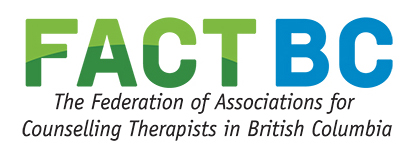Under the Canadian Constitution, Provinces and Territories are responsible for most of the legislation governing trade, including the regulation of professions. The Canadian Free Trade Agreement among the Federal, Provincial and Territorial governments includes facilitation of the inter-jurisdictional[1] mobility ofprofessionals. Without this agreement, a regulated professional moving to BC would have to meet all of the current detailed BC requirements [2] despite having already gone through the regulatory process in another province.
Recognizing that regulatory legislation differs between Provinces, the agreement is designed to honour justifiable differences in regulatory requirements while setting aside inconsequential barriers to mobility. The intent of the Agreement is to require provincial regulators to strike a balance between reasonable requirements which can be supported by substantive evidence while waiving arbitrary and unjustifiable requirements.
Suppose a Counselling Therapist who has regulated status in Province A wants to move to, and obtain regulated status in, Province B.
Under the agreement, Province B would be entitled to require:
- Passing a jurisprudence exam set by Province B.
- Passing a language proficiency exam set by Province B, particularly if Province A does not have such a requirement.
- Passing a unique competency requirement specific to Province B, such as an Indigenous knowledge requirement.
- If legislation in Province B differs from that Province A by having a broader scope of practice for the profession, or if Province B has some specific restricted acts granted to registrants which do not apply in Province A, then applicants for status in Province B can reasonably be required to demonstrate additional competencies.
However, under the agreement, Province B would not be entitled to require:
- A specific credential such as a graduate degree, when it can be demonstrated that the presumed competencies predicted by possession of the credential have been acquired in other ways.
- A record of training received only in specified jurisdictions (only in Canada, for instance) or from limited, specified sources (such as a short list of approved programs), when it can be demonstrated that the presumed competencies can be acquired via training in other jurisdictions or from other sources.
In essence, the agreement requires a regulator to rely on demonstrable competencies as the ultimate test of applicant suitability for professional regulation. Thus, provinces with narrowly written requirements for regulation may be required to grant regulated status to demonstrably competent applicants who do not possess specific credentials or designated educational and training histories.
It is because of this agreement that professionals can challenge regulatory requirements which might otherwise block their mobility aspirations. As an example, a registered member of the College of Psychotherapists of Ontario is eligible to obtain registered status in Nova Scotia (which specifically requires a graduate degree) through the channels provided by the agreement.
____
[1] For simplicity, we’ll just consider Provinces here. [2] Provincial requirements for Criminal Record checks and other aspects of “good character” applied to applicants for professional regulation are relatively universal and are not considered in this discussion.
